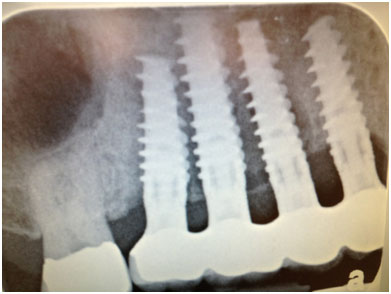Uncategorized
Does Sinus Membrane Perforation Affect Implant Survival?
METHODS:
Retrospective data was obtained from 23 patients who had undergone sinus augmentation procedures with a total of 40 treated sinuses. Sinuses were grafted with mineralized cancellous bone allograft, anorganic bovine bone matrix, or biphasic calcium phosphate. There were 15 perforated sinuses which were repaired with an absorbable collagen membrane. Histologic cores were taken from all treated sinuses 26 to 32 weeks after surgery.
RESULTS:
Average percentage of vital bone was 26.3% ± 6.3% in the repaired sinuses versus 19.1% ± 6.3% in the non-perforated sinuses. The implant success rate was 100% in the repaired sinuses versus 95.5% in the non-perforated sinuses. There was no statistically significant difference in the failure rates.
CONCLUSIONS:
There was greater vital bone formation in the repaired sinuses compared to the non-perforated sinuses after augmentation. When properly repaired, maxillary sinus membrane perforations do not appear to adversely affect vital bone formation or implant survival.
DR. GEBRAEL’S COMMENTS:
Interesting enough we see more vital bone formation in the repaired sinuses after grafting. The authors of the study indicate this may be due to the membrane over the perforation acting as a second barrier that prevents soft tissue migration and immobilizes the graft particles.
FOR MORE INFORMATION PLEASE REFER TO:
Effect of maxillary sinus membrane perforation on vital bone formation and implant survival: a retrospective study.
Froum SJ, Khouly I, Favero G, Cho SC.
J Periodontol. 2013 Aug;84(8):1094-9


